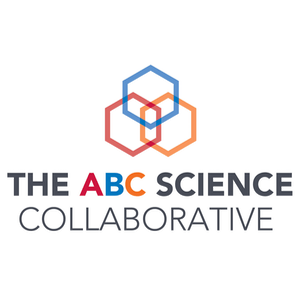
Top scientists and physicians from the ABC Science Collaborative have shared insights from North Carolina schools, coupled with a science-based blueprint for all schools to resume full, in-person instruction safely.
A new report issued today by the DCRI-led ABC Science Collaborative shows that North Carolina schools were highly successful in preventing the transmission of COVID-19 within school buildings and offers science-based learnings for the nation’s schools to limit COVID-19 spread.
The report is accompanied by “COVID-19 and Schools: The Year in Review and a Path Forward” that reviews the latest science coming out of North Carolina and around the world to provide a set of key takeaways to help school leaders and policymakers plan a path forward for safely resuming in-person instruction during the 2021-2022 school year.
On behalf of the State of North Carolina, the ABC Science Collaborative collected data from all North Carolina elementary, middle, and high schools operating under a model called Plan A, which provided full, in-person instruction, masking, and minimal physical distancing from March to June 2021. The data represent 100 local school districts and 14 charter schools comprising more than 1,280,000 students and 160,000 staff.
The report finds that North Carolina schools adhering to the protocols succeeded in limiting the transmission rate of COVID-19 within schools. Fewer than 1 in 3,000 students who were in school buildings became infected with COVID-19 during school, or 308 school-acquired cases recorded for students and 55 for staff.
The report confirms that wearing a mask was an effective strategy to prevent COVID-19 transmission in schools, even without physical distancing in the classroom or on school buses.

“North Carolina is charting the path forward for our nation, showing that schools can safely resume full in-person instruction while mitigating COVID-19 transmission,” said Danny Benjamin, MD, PhD, MPH, a DCRI pediatrician and co-chair of the ABC Science Collaborative. “These data should help school leaders chart a safe course to resume in-person instruction in the year ahead. In-person schooling offers more than an education – it offers a safe place for students to learn, live, and grow, and it is critical to the health of our nation’s children.”
The findings demonstrate that:
- Proper masking is the most effective mitigation strategy to prevent COVID-19 transmission in schools when vaccination is unavailable or there are insufficient levels of vaccination among students and staff;
- With masking in place, Plan A – full, in-person instruction – is appropriate for all grades and all schools;
- Full-capacity bus transportation can and should resume, with the seating of up to three masked students per bus seat;
- Some within-school guidelines can be relaxed, e.g., quarantine can be modified for people who were exposed to COVID-19 but are either vaccinated or were appropriately masked when exposed; and
- Schools should examine safety protocols surrounding athletics. With proper safety protocols in place, particularly vaccination, schools could resume fall athletics while limiting the spread of COVID-19.
These key takeaways, and others, are described in the ABC Science Collaborative’s “COVID-19 and Schools: The Year in Review and a Path Forward.” The ‘Year in Review’ summary includes a comprehensive review of current scientific literature, including Plan A data from North Carolina, for COVID-19 transmission and mitigation strategies in K-12 schools.
The summary was written by ABC Science Collaborative faculty who are physicians and scientists from Duke University, the University of North Carolina at Chapel Hill, and leading scientists from 13 states across the nation. The summary has undergone a review process by ABC Science Collaborative faculty and the wider pediatric scientific community.

“The key takeaways in the ‘Year in Review’ offer a road map for school leaders and policymakers to use the latest science as they plan the path forward for K-12 in-person instruction,” said Kanecia Zimmerman, MD, MPH, a pediatrician at the DCRI and co-chair of the ABC Science Collaborative. “The science clearly shows us that masking is an effective strategy to prevent within-school transmission when COVID-19 is circulating and when vaccination is not yet available for all children. The science also highlights proven best practices to safely return to school.”